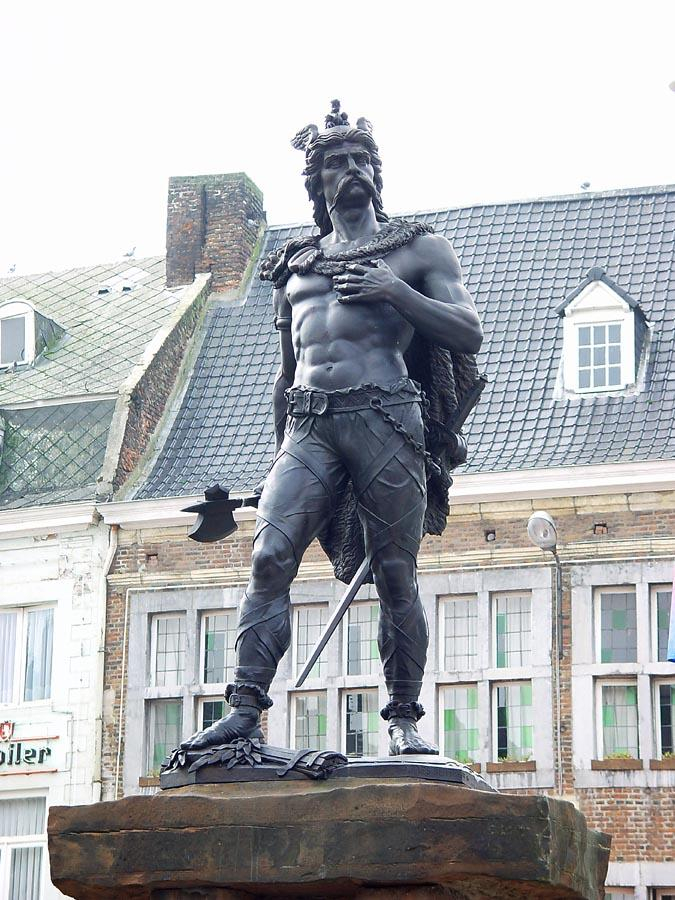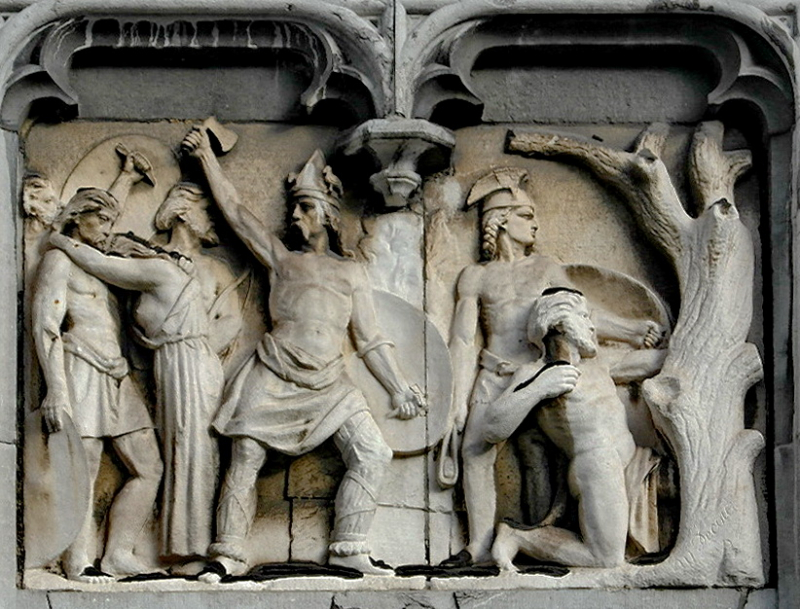Ambiorix
Ambiorix (Gaulish for "king of the surroundings" or "king-protector") (fl. 54-53 BC) was the leader of a Belgic tribe in north-eastern Gaul (Gallia Belgica), where modern Belgium is located, together with Cativolcus, prince of the Eburones. Ambiorix became a Belgian national hero in the nineteenth century as a result of his resistance to Julius Caesar, as described in Caesar's Commentarii de Bello Gallico.
Ambiorix's revolt was a Gallic Wars episode between 54 and 53 BC in which the Eburones tribe, led by Ambiorix, rebelled against the Roman Republic. Dissatisfaction among the subdued Gauls sparked a significant insurrection against Julius Caesar among the Belgae in the winter of 54-53 BC, when the Eburones of north-eastern Gaul rose in rebellion under their commander Ambiorix. Fifteen Roman cohorts were annihilated at Atuatuca Tungrorum (modern Tongeren, Belgium), and a garrison led by Quintus Tullius Cicero narrowly escaped after being rescued by Caesar in time. The remainder of 53 BC was spent on a retaliatory war against the Eburones and their allies, who were claimed to have been nearly destroyed by the Romans.
Until the nineteenth century, Ambiorix was a relatively unknown character. Belgium's independence in 1830 prompted a search for national heroes. Ambiorix and his exploits were rediscovered in Caesar's De Bello Gallico. Joannes Nolet de Brauwere Van Steeland, a Belgian poet, created a lyrical epic about Ambiorix in 1841. Furthermore, on September 5, 1866, a statue of Ambiorix, referred to by Caesar as Atuatuca, i.e. Atuatuca Tungrorum, was constructed on the main market square in Tongeren, Belgium. Ambiorix is now one of the most well-known characters in Belgian history. Many businesses, bars, and fripperies have been named after him, and he appears in many Belgian comics, including Suske en Wiske and Jommeke.












